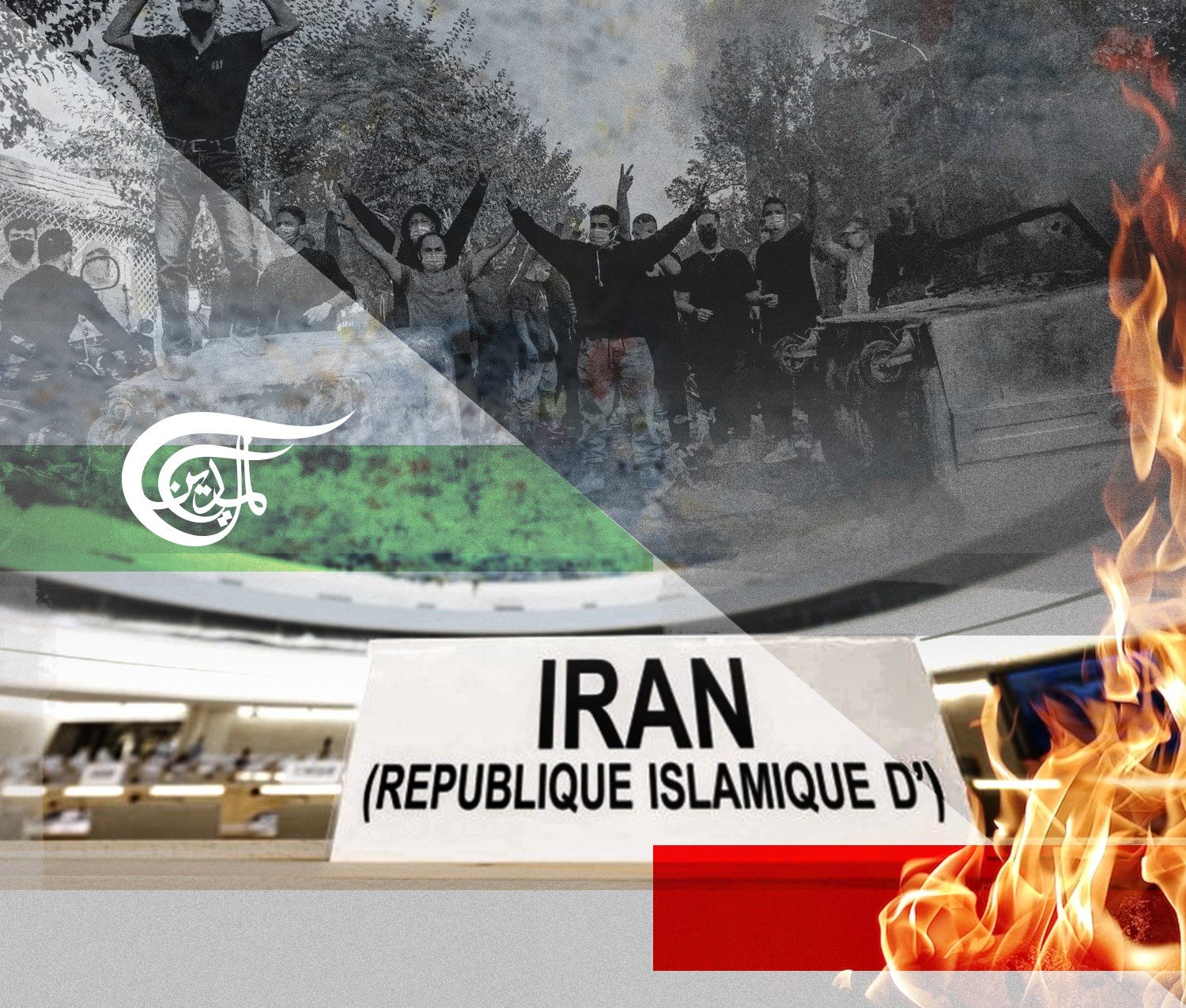Turning human rights into a tool to intervene in Iran's internal affairs
The hostility toward Iran results from its opposition to pervasive Western colonialism and its decision to develop its economy and defense independent of Western dependence.
Iran's Foreign Ministry declared that the country would reject the newly appointed impartial United Nations probe investigating the alleged country's crackdown on anti-government riots. The Human Rights Council of the United Nations will probe alleged “human rights abuses in Iran notably against protesters." The Foreign Ministry maintained that Tehran "completely opposes" the decision and has established a national committee of inquiry comprised of lawyers and "independent representatives".
The Iranian government has condemned the decision and called the move a "violation of Iran's national sovereignty." Moreover, establishing a new body to investigate the events of the previous two months in Iran is pointless and a clear affront to the country's sovereignty. Tehran blamed Germany and other countries that backed the resolution. This resolution was pushed through by political interest groups that profit from disseminating misinformation by anti-Iranian media. The UN move came at the closing of an emergency session to discuss Iran's situation, which was sought by Germany and Iceland and supported by 50 nations.
Notably, Iran has criticized the West for its stance. According to Khadijeh Karimi, Iran's deputy vice president for women and family affairs, the United States and Europe "lack the moral credibility to preach on human rights." She further stressed, "It is appalling and humiliating that certain parties in the West have reduced the common cause of human rights to a tool for political objectives".
Iran has accused Western countries of inciting violence in the Islamic Republic by assisting rioters in producing guns and Molotov cocktails. Recently, Pakistan, Venezuela, and others supported Iran, while China's Ambassador Chen Xu warned against "turning human rights into a vehicle to intrude into other nations' domestic affairs." Hence, the hasty and politicized use of human rights mechanisms will not promote human rights and its relevant institutions. The UN Special Rapporteur on human rights in Iran, Javaid Rehman, has indicated that a vote by the UN has raised the risk of "violence and repression" in Iran.
Most importantly, the West has "double standards" regarding justice and human rights. It results from the bias toward favoring one side over the other. This attitude will be detrimental to the interests of Germany and certain Western countries. Iran's Foreign Minister also criticized "Israel" and Western intelligence agencies for seeking to spark a civil war and divide Iran.
Recently, President Ebrahim Raisi accused the West of double standards on women's rights at the UN General Assembly. He also highlighted the killing of indigenous women in Canada and the Israeli brutality toward Palestinians. Raisi criticized the Western world for "violations of human rights and the rights of nations," especially the rights of Canada's indigenous peoples. However, while denouncing Canada for its treatment of its indigenous population, the international community has remained silent on the "death of tens of helpless women" in a Western country.
According to Iran's leader Sayyed Ali Khamenei, the enemy aims to undermine people's faith, which is crucial to upholding the nation and the Islamic system, by sowing doubt among them. The United States has announced plans to impose further sanctions on the Islamic Republic of Iran. Forcing Iran to surrender is the issue and not the Hijab or women's rights. At the same time, western media has been agitated by these images, seemingly rousing calls for international intervention in Iran. Moreover, diplomatic efforts to resurrect a 2015 nuclear agreement between Iran and foreign powers have been overshadowed by the unrest after they came close to fruition in recent months before halting once more.
Is it perhaps more about Iran's refusal to submit to Western hegemony than human rights? The Islamic Revolution's victory in 1979 signaled the end of Western meddling in Iran. Since then, the United States has repeatedly sanctioned various aspects of the Iranian government and economy, including but not limited to financial institutions, individuals, central banks, and shipping businesses.
Furthermore, over the past 43 years, the West has offered Iran various incentives, both directly and indirectly, to give up on the Palestinian cause, halt enmity toward the Israeli regime, and end support for oppressed, weak, and vulnerable people globally. Significantly, Iran is the only nation in West Asia that had refused to recognize US hegemony. Moreover, Iran was the only "rebellious" nation in Asia and the Middle East to put up a fight against the world's purported superpower.
Thus, the hostility toward Iran results from its opposition to pervasive Western colonialism and its decision to develop its economy and defense independent of Western dependence. The narrative of "human rights" has a distinct meaning when selectively employed by the United States: it becomes synonymous with regime change and color revolution when a country refuses to capitulate to American demands and policies.
References:
https://www.universal-rights.org/blog/report-of-the-35th-special-session-of-the-human-rights-council-on-the-deteriorating-human-rights-situation-in-the-islamic-republic-of-iran/
https://www.ohchr.org/en/news/2022/11/human-rights-council-establishes-fact-finding-mission-investigate-alleged-human-rights

 Ruqiya Anwar
Ruqiya Anwar
 5 Min Read
5 Min Read












